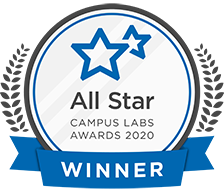What conduct is subject to disciplinary action?
The prohibited academic and non-academic conduct listed in Section 4.0 of the Student Code of Conduct is subject to disciplinary action when it occurs on University or Housing premises, or in connection with a University course or University documents, or at a University sponsored activity.
What is academic misconduct?
"Academic misconduct" means any activity which tends to compromise the academic integrity of the institution or subvert the education process.
What are examples of academic misconduct?
Examples of misconduct include, but are not limited to cheating, fabrication, plagiarism, unauthorized reuse of work product, academic obstruction, enlisting the assistance of a substitute in the taking of examinations, violation of course rules as contained in the course syllabus or other written information provided to the student. (Section 2.0)
How are the different examples of academic misconduct defined in the Student Code of Conduct?
The definitions can be found in Section 2.0 of the Code.
***Recent examples of cheating include students using Chegg.com and WhatsApp group chat during an exam as well as sharing exam materials with other students.
2.3 "Cheating" means intentionally using or attempting to use, or intentionally providing or attempting to provide, unauthorized materials, information or assistance in any academic exercise.
Examples: This includes copying from another student's test paper, allowing another student to copy from your test, using unauthorized material during an exam and submitting a term paper for a current class that has been submitted in a past class without appropriate permission.
2.5 "Fabrication" means intentional and unauthorized falsification or invention of any information or citation.
Example: Knowingly attributing citations to the wrong source or listing a fake reference in the paper or bibliography.
2.8 "Plagiarism" means to take and use another's words or ideas as one's own.
Example: To take and use another's words or ideas as your own without appropriate referencing or citation.
2.10 "Academic obstruction" means any attempt to limit another student's access to educational resources, or any attempt to alter equipment so as to lead to an incorrect answer for subsequent users.
2.11 "Unauthorized reuse of work product" means submission for academic credit, without the prior permission of the instructor, of substantial work previously submitted for credit in another course.
Other examples: Selling, buying or stealing all or part of a test or term paper, unauthorized use of resources, enlisting in the assistance of a substitute when taking exams, destroying another's work, threatening or exploiting students or instructors, or any other violation of course rules as contained in the course syllabus or other written information.
Can my instructor adjust my grade downward?
When a faculty member is persuaded that academic misconduct has occurred, the faculty member may, without filing a charge, adjust the grade downward (including downgrading to a failing grade) for the test, paper, or other course-related activity in question, or for the entire course. (Section 10.1A)
How can I appeal my grade downgrade?
The student may appeal by filing a written request with the department chair within ten school days of notification by the faculty member. The department chair shall give the student an opportunity for appearance within fifteen school days of receiving the student's appeal, and shall notify the student of the decision, in writing, within ten school days of the opportunity for appearance. (Section 10.1A)
The student may then appeal to the Dean of the College, in writing, within ten school days of the written notice date of the Chair's decision. Where the Department Chair is the faculty member, then the student may appeal directly to the Dean of the College, in writing, within ten school days of the oral notice or postmark of the written notice, from the faculty member.
The Dean of the College shall notify the student of his/her decision within ten school days of the submission date of the student's appeal.
*The Dean of the College decision shall be final.*
Who can initiate misconduct charges against a student?
Any person may initiate charges against one or more students or a student organization believed to have violated this code, by submitting an incident report with information pertinent to the case, to the Student Conduct Officer. (Section 10.0)
In the case of academic misconduct charges against a student, the Student Conduct Officer shall conduct a preliminary investigation and forward a copy of the charges to the Dean of the College in which the student is enrolled.
Charges of non-academic misconduct made against students or student organizations will be adjudicated in the Dean of Students Office.
How will I know that charges have been filed against me?
The Student Conduct Office will send the student a notice with a copy to the Dean of Students or the Academic Dean, within ten school days of the Student Conduct Officer's receipt of the charges, and at least five school days prior to the conference.
The notice will contain the following information: a) The alleged infraction; b) The nature of the evidence submitted; c) The time and place of the conference; d) A copy of this code, with a statement that it is the governing policy and that the student should retain it for use throughout the proceeding.
What is a fact-finding conference?
Upon receipt of the charges, the Student Conduct Officer shall initiate an investigation, which must include an opportunity for the student(s), or representative(s) of the student organization, to participate in a fact-finding conference with the Student Conduct Officer, and may include a conference by the Student Conduct Officer with the reporting party, in order to determine whether further proceedings are appropriate. (Section 11.1)
Can I bring an advisor?
Yes. The role of the advisor is solely to counsel and assist the student. The student may select any individual to serve as an advisor. The Student Conduct Officer may revoke permission for the presence of an advisor or attorney at any time if, in the judgment of the Student Conduct Officer, it is not improving the quality of the conference.
Will the misconduct charge appear on my disciplinary record?
The Student Conduct Officer shall maintain disciplinary files in the name of the student respondents.
Except where litigation or administrative proceedings are pending regarding the matter, if a student is found not to be in violation of the charges their file shall be sealed, and after three years shall be destroyed.
The files of students found in violation of any of the charges against them will be retained as a disciplinary record for the duration of time specified in the sanction, but no less than five years. If the sanction includes a Transcript Disciplinary Record pursuant to Section 5.10, disciplinary records shall be retained permanently if the transcript entry is permanent, or, if the entry is for a specified period of time, for five years after the end of that period. Disciplinary records may be retained for as long as litigation or administrative proceedings are pending regarding the matter.
What sanctions can be imposed if I am found responsible for a Code violation?
Students found responsible for misconduct may be subject to one or more sanctions (disciplinary reprimand, disciplinary probation, loss of privileges, discretionary sanctions, campus housing suspension, campus housing expulsion, suspension, expulsion, restitution, transcript disciplinary record, etc.), which shall take effect immediately upon imposition, unless otherwise stated in writing, except as provided in the code. More than one sanction may be imposed for any single violation. (Section 5.0)
Is there anyone I can contact to advise me about the proceedings in the Code?
The Office of the Ombudsperson is available to advise students at any stage in the proceedings provided for in this code. To assure that students are aware of that availability, whenever charges are initiated against a student or student organization, the Student Conduct Officer will provide the student (or representative of the student organization) with a copy of a memorandum prepared by the Ombudsperson explaining the Ombudsperson's role.
Contact the office directly at 313-577-3487 or send an email to ombudsoffice@wayne.edu.


